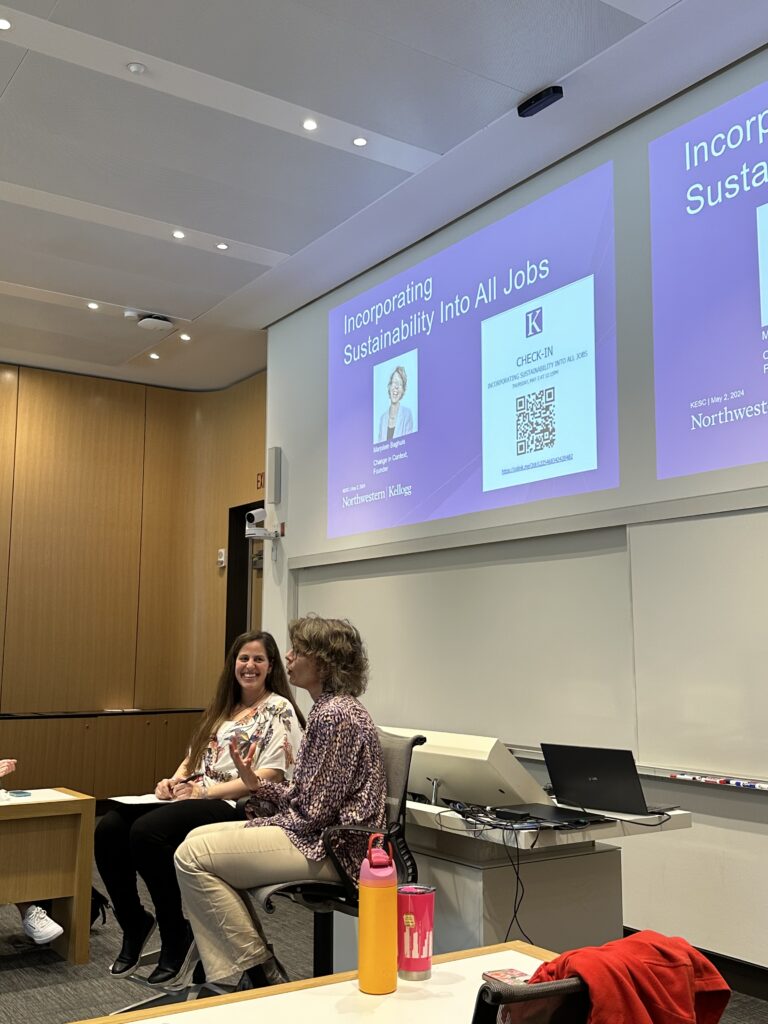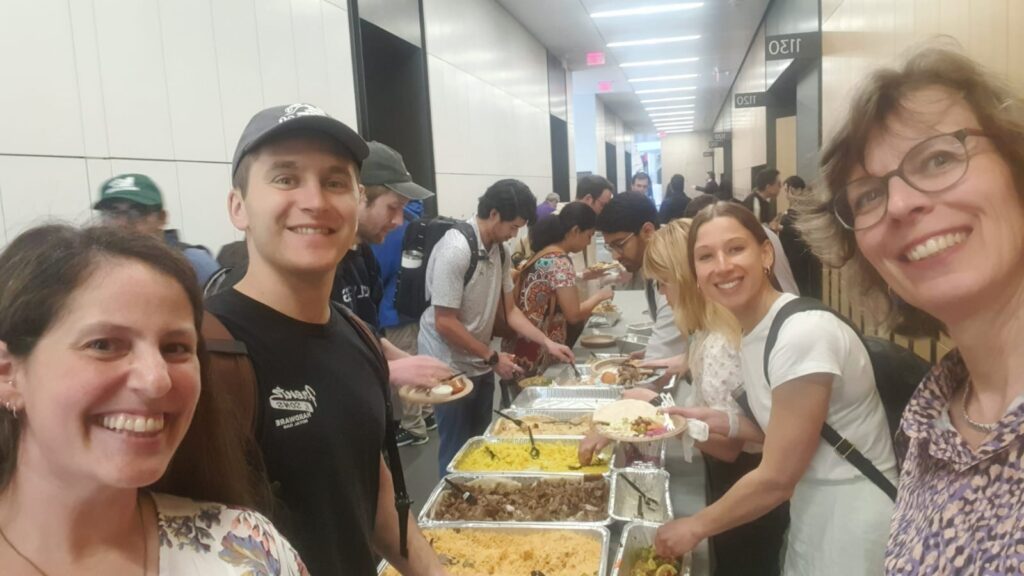Many students aspire to have sustainability in their job title straight out of school. But is that the best way to drive positive change? That was the focus of my talk with an amazing group of MBA students at the Kellogg Graduate School of Management in May 2024. Here are some highlights from the conversation on incorporating sustainability into your job.
Incorporating sustainability is everyone’s job
Around the world and across industries, there is an increase in sustainability roles. Some companies even appoint Chief Sustainability Officers. Many people I talk to are eager to enter one of these roles. A job that has sustainability or ESG in its job title. And while that may seem like the best place to start, many other roles might be even better to drive sustainability in an organization. No matter how big the sustainability team is, it will never be able to manage all the sustainability impacts, risks, and opportunities. Especially if people in other teams feel like sustainability is only relevant for the sustainability team…
By making it clear how sustainability is relevant to different roles in an organization, many more people will be able to contribute. In fact, that is the only way to integrate sustainability into the strategy and business model. Incorporating it into all jobs will help companies accelerate their sustainability strategy, and continuously find new opportunities to drive positive change for society and the company. So no matter what role you go into after graduation, connect with the sustainability team to understand how you can contribute. And if you do land that sustainability role, be sure to engage people in other teams by making it very clear how you expect them to contribute, and how they can incorporate sustainability in their roles.
Focus on what’s relevant
Sustainability contains so many topics, that it doesn’t mean the same thing to all companies. Rephrased: it shouldn’t mean the same thing to all companies. Perhaps that is why there are so many names for it, including ESG, responsible business conduct, CSR, etc. After graduation, many Kellogg students will work in consulting, financial services, and consumer packaged goods. No matter what industry you are in or will be in, do some research on what matters most for that company. This so-called “materiality analysis” is an excellent way to focus sustainability efforts on what is relevant to the specific company, in the context of its industry and value chain. Many companies publish this analysis, so have a look at where your company’s focus is, and check out what competitors and value chain partners are doing.
By looking at sustainability through the angles of impacts, risks, and opportunities, incorporating sustainability into all roles becomes easier and more relevant. If you can’t find a materiality analysis for your organization creating one is a great way to get started.
Connect to drive change
Whether you have sustainability in your job title or not, collaborate with others to drive change. Focusing on relevant topics will help you engage others within your organization or across your value chain. Perhaps collaborate to determine those relevant topics. Find people eager to drive change and support each other in incorporating sustainability into your role.
You’ll quickly find out who your allies are and who the people are who are less eager to change or drive change. Look at all of them with empathy. Do they not yet understand why this is relevant? Do they lack the skills to contribute? Or are they held back by systems and routines that no longer match where the company is going? Meet your colleagues where they’re at and help them overcome barriers to change. Especially middle management may have a hard time incorporating sustainability into their roles. The very ways that made them successful in the past, may be unsuitable for the future. That is why studying topics like organizational behavior and the psychology of change is so important, whether you are still at school or not.
Be brave and be patient
Incorporating sustainability into an organization’s strategy and business model takes time. So keep your efforts focused on what matters. And don’t try to go on this important journey alone. On this journey, you will need to be both brave and patient. To raise your voice to drive change, putting sustainability on the agenda with corporate leaders and colleagues. Yet sometimes, you may need some patience or even a small step back to accelerate later. Use that time for yourself as well, to take a step back and recharge your batteries. The world needs change-makers like the engaged Kellogg students who joined this session. It’s not easy driving this kind of change – so make sure you also take good care of yourself!
A big shout out to Rachel Elman for the great job moderating the session and setting up this Kellogg Energy and Sustainability Club lunch & learn session while I was in town for my Kellogg reunion. It was so inspiring to have the opportunity to have this dialogue with so many students!
This post was written by Marjolein Baghuis for the Change in Context blog. It was also posted on LinkedIn. To read interviews with interesting people, book reviews, and other posts about change, leadership, and sustainability, please subscribe.


